Extortion of DWP 2024 Concertgoers by the Police
Three senior officers of the Jakarta Police were dismissed for orchestrating the extortion of spectators at the DWP 2024 music concert. Six lawyers were involved.
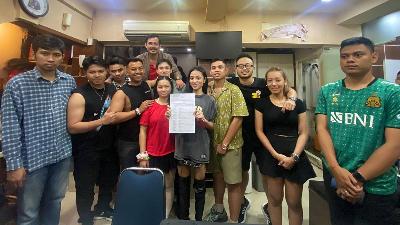
Three senior officers of the Jakarta Police were dismissed for orchestrating the extortion of spectators at the DWP 2024 music concert. Six lawyers were involved.

Tempo’s People of the Year 2024 are those who managed to mobilize the public to make a move. Instead of individuals, they are movements or groups, not only in Jakarta but also in the regions.

Farwiza Farhan, the winner of the 2024 Ramon Magsaysay award talks about conservation of the Leuser Ecosystem in Aceh.
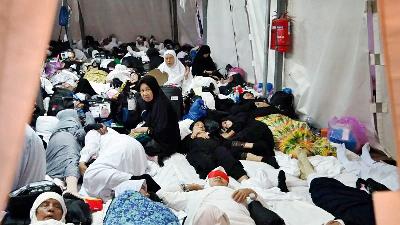
During the 2024 haj pilgrimage in Mina, some pilgrims were forced to sleep in cramped conditions. Some of accompanying haj officials did not go through a selection process.
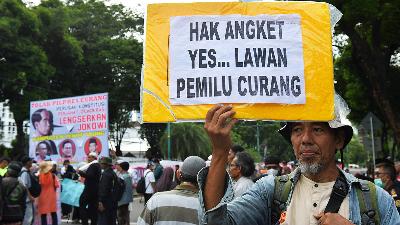
The right of inquiry to investigate alleged fraud in the 2024 elections is threatened to run aground in the House of Representatives (DPR), influenced by offers of ministerial seat in Prabowo’s cabinet.

The presidential election is not over yet. The lawsuit in the Constitutional Court shows that something is wrong in the 2024 presidential election.

Under the leadership of Airlangga Hartarto, Golkar sees a significant increase in votes during the 2024 General Elections. Part of it is due to the Jokowi effect.

The 2024 election debates should include culture and academic as themes, with the latter necessarily coming out of a concern how easy it is to obtain a doctoral degree.
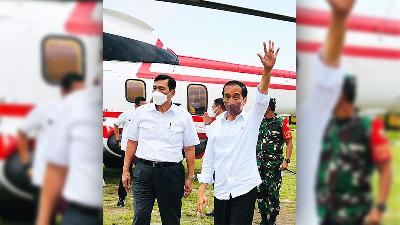
Ministers and senior officials from the government coalition are calling for the 2024 elections to be delayed. Like those of Sukarno and Suharto, Jokowi’s presidency could end in tragedy.
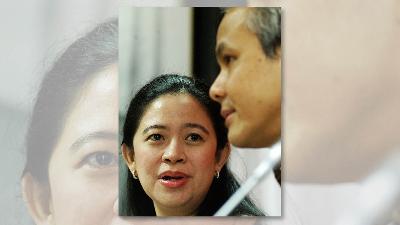
It is reported that President Jokowi gives the green light to a number of prospective candidates wanting to stand for the presidency. Is he seeking political protection post-2024?

The police and prosecutors have yet to target the officials who issued building use permits and maritime ownership rights in Tangerang. A planned crime.

Budget cuts threaten the conservation and climate crisis mitigation agendas. Prabowo’s policies ignore the environment.

The House of Representatives' procedural regulations give it the authority to evaluate public officials. This is a sign of a move towards competitive authoritarianism.

Danantara is President Prabowo’s style of capitalism. Realizing the dream of his father.

The launch of Danantara triggers a market sell-off in key SOEs and casts doubt on its mission to boost valuations.

Jakarta cultivates its own culture. Betawi likewise grows its own culture, identical to ethnic traditions.

Letters from readers.
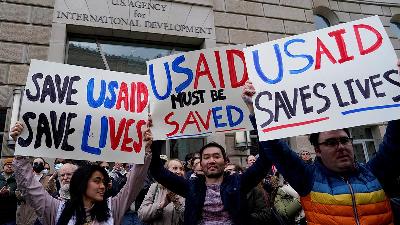
Several government programs come to a standstill after the United States’ decision to freeze USAID. It is necessary to find alternative donors.
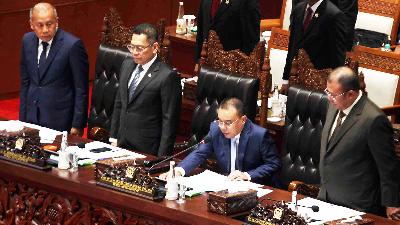
The revision of the DPR’s Code of Conduct is suspected to be used to remove several officials. Constitutional Court judges and the Bank Indonesia Governor are suspected to be the targets.
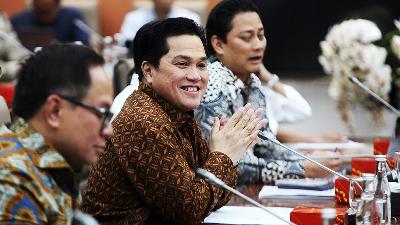
State-Owned Enterprises Minister Erick Thohir shares his perspectives on Danantara and the new SOEs Law.
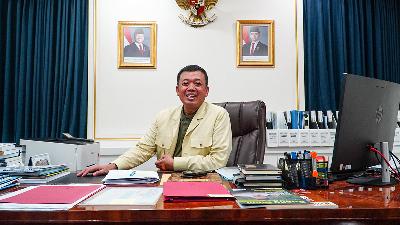
Agrarian Affairs and Spatial Planning Minister Nusron Wahid explains the polemic surrounding the sea barriers and the land certificates for the north coastal areas in the Tangerang Regency.
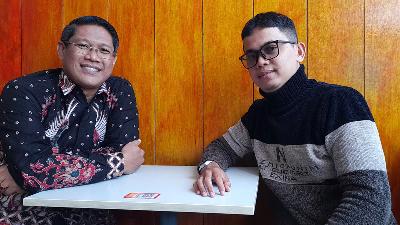
Kohod village head Arsin claims documents and his signature were forged to obtain a land certificates for the area surrounding the barrier in the sea.
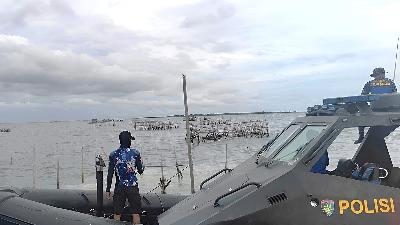
Kohod village officials and a lawyer are suspected of forging documents for the issuance of right to build certificates in the waters of Tangerang. Regional officials are involved.
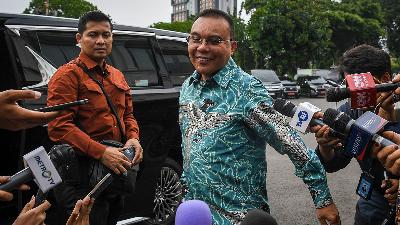
DPR Deputy Speaker Sufmi Dasco Ahmad share his perspectives on Danantara and the new SOEs Law.
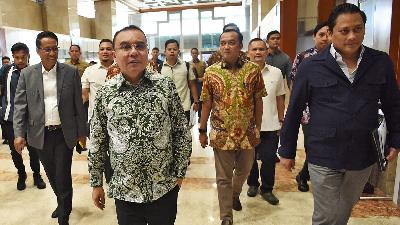
The state’s revenue target from SOE dividends will be eroded. New sources of income are needed to prevent a fiscal deficit.
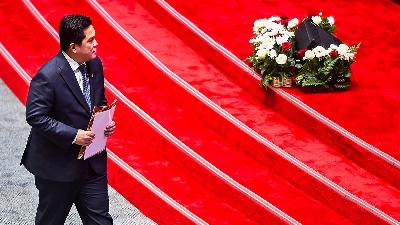
The State-Owned Enterprises Law regulates the division of authority between the SOEs Ministry and Danantara. There is potential for conflict.
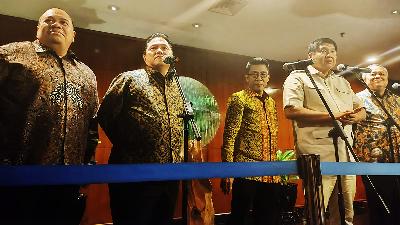
President Prabowo Subianto will replace Danantara’s management. Rosan Roeslani will take the helm, while Muliaman Hadad is sidelined.

The State-Owned Enterprises Bill alters Danantara’s function. There are lobbying efforts to maintain the SOEs Minister’s authority.

Budget cuts in the Forestry Ministry threaten conservation efforts. Wildlife patrols and monitoring are reduced.

Cartoon: Yuyun Nurrachman

Digital platforms open up the market for high quality Indonesian movies. The movie theater business model disadvantages filmmakers.

Prabowo’s carbon capture and storage campaign is dominated by business interests, rather than climate crisis mitigation.

President Prabowo is keeping the police untouched. The institution is increasingly making the people uneasy.
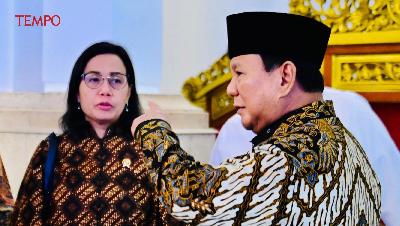
There are no clear criteria for the budget cuts imposed on ministries and agencies, and there is an impression of favoritism.

Surge in investment failed to boost Indonesia’s economic growth. Fundamental and structural reforms are needed.

Eating is a part of social intimacy. It is the foremost front for politics.

Yoga Pratama is chosen as Tempo’s best actor of the year through the film Kabut Berduri. He successfully portrayed a complex character and a variety of emotions.

Laura Basuki masterfully brings the lead character in Yohanna to life. She learned from young local talents.

Besides having the right style to create a narrative film, Yohanna derives its strength from its depth of meaning.
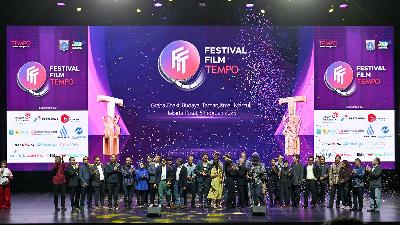
Nominees in the 2024 Tempo’s Film Choice highlight individuals’ social, economic, and mental health issues from villages to the capital city of Jakarta.
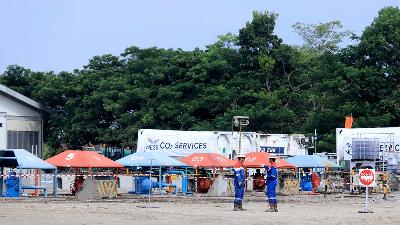
The government is aggressively marketing the business of storing carbon dioxide from other countries. This move raises concerns about potential leaks and greenwashing.
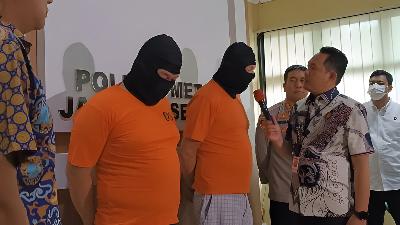
Adjunct Sr. Pol Comr. Bintoro and three other police officers extorted suspects in a child’s death case. The money allegedly flowed to the South Jakarta Metropolitan Police Chief.
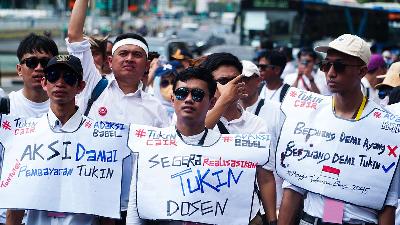
The government failed to fulfill its obligation to pay lecturers’ performance allowances since 2020. The Minister of Education prioritizes Merdeka Belajar over their claims.

Rosan Roeslani, Investment and Downstreaming Minister, on the investment targets and the roadmap for downstreaming natural resources.
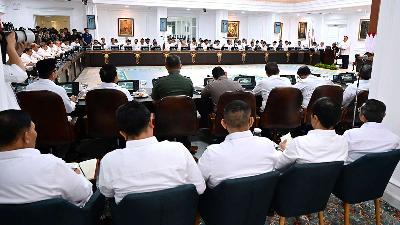
The government’s budget cuts are targeting spending deemed wasteful. However, the size of Prabowo Subianto’s cabinet contradicts his austerity rhetoric.
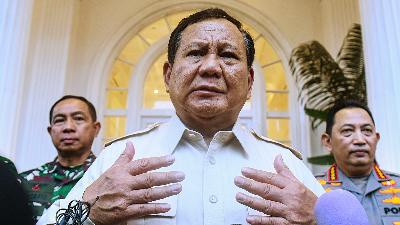
Several institutions, including the National Police and the Defense Ministry, are spared from budget cuts. Procurement of defense equipment continues.
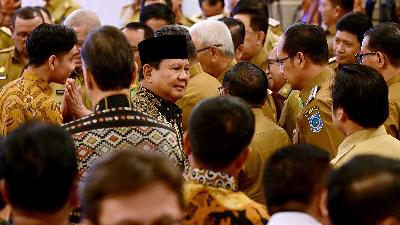
Regional governments are identifying budget items that can be trimmed. Some are covering expenditure needs by taking on debt.
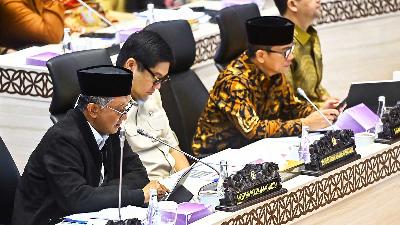
Key projects and public services will be affected by budget cuts. Employees struggle to work with the remaining funds.

Prabowo Subianto slashes state spending to finance the free nutritious meals program as sluggish tax revenues drain the state treasury.
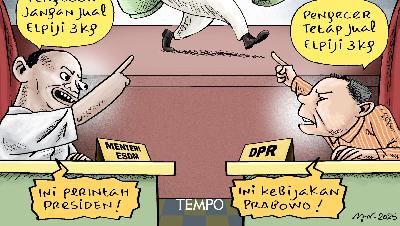
Cartoon: Yuyun Nurrachman

Prabowo Subianto orders the ministries to be economical in budget spending. Will the President’s instructions be realized effectively?
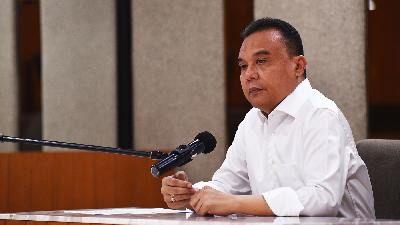
Gerindra Party Executive Chair Sufmi Dasco Ahmad responds to the negative assessment of the first 100 days of the Prabowo-Gibran administration in a special interview with Tempo.

Deputy Foreign Minister Arif Havas Oegroseno talks about the foreign policy of President Prabowo Subianto’s government.

President Prabowo Subianto now dominates foreign policy. The Ministry of Foreign Affairs must align with the President’s agenda.

Several business figures are part of Prabowo Subianto’s inner circle, resembling the Benteng Program, which once granted privileges to indigenous entrepreneurs.

Foreign investor confidence in Prabowo Subianto’s administration remains low in its first 100 days. Spending surged without a corresponding increase in revenue.

Several forestry sector programs, including carbon trading, stall under Prabowo Subianto’s administration. The ministries remain inactive.

During his first 100 days in office, Prabowo Subianto frequently made climate-friendly claims. However, many agendas stalled due to ambitious targets and new projects.

The gap between Prabowo’s ambition and reality leads to policy inconsistencies.
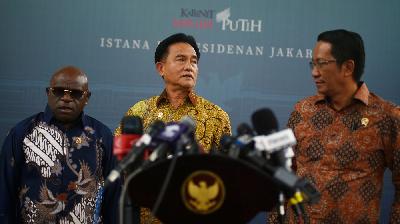
Minister Yusril Ihza Mahendra confirms that pardoning corruptors is not recognized in the Indonesian legal system. His ministry is still using the old budget.

President Prabowo deploys the military to execute his priority programs, strengthening the dual function of the TNI.
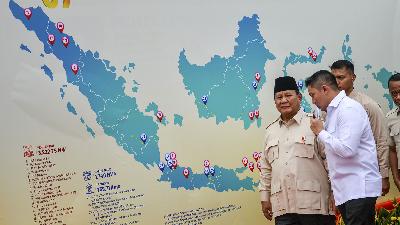
President Prabowo has four trusted individuals who have been conducting political maneuvers during his first 100 days in office.
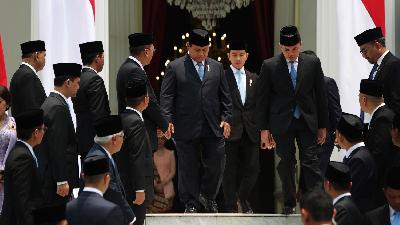
Prabowo Subianto made blunders during his first 100 days in office. He failed to address fundamental issues.

After three months of President Prabowo Subianto in office, the direction of his economic policy is still not clear. There is no role for technocrats in the cabinet.

The first 100 days of Prabowo’s administration displays hypocrisy in environmental management. The vision is different from the reality.

The Prabowo administration is continuing the tradition of crooked law enforcement inherited from its predecessor. This needs to be corrected immediately.
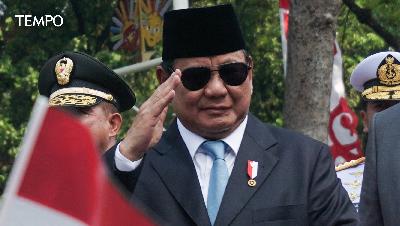
Militarism has strengthened in the 100 days of Prabowo Subianto’s cabinet. It has given rise to competitive authoritarianism.
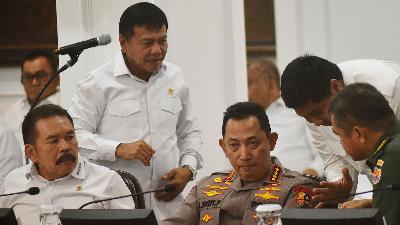
Prabowo Subianto is suspected of lacking a specific program for the National Police and the Attorney General’s Office. There are suspicions of interference by Sufmi Dasco Ahmad.

Social Affairs Minister Saifullah Yusuf explains social assistance as a pillar of public satisfaction in the first 100 days of Prabowo’s cabinet.
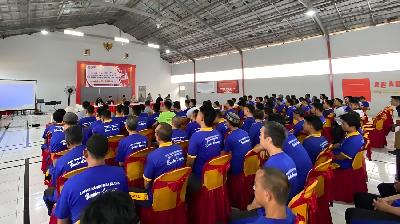
Prabowo Subianto once proposed the idea of pardoning corruptors to save state funds, presenting it as a solution for the government’s coffers.
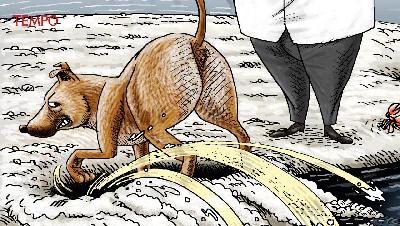
Cartoon: Yuyun Nurrachman

By becoming a spectator, for just a moment, we are wiser because we distance ourselves from the game. Being late and slow may make humans better.

The sea barrier in the waters of Tangerang shows demarcation of territory ownership. The barrier signifies not only value deserving to be protected but also human ambition to have control over territory.

The foot-and-mouth disease is once again attacking our cattle. It threatens the food self-sufficiency program.

Demanding illegal levies from newcomers tarnishes the image of Bali. Action must be taken against people taking advantage of traditional regulations.

Universities must reject the plan to share out mining permits in order to maintain their institutional independence.

Art liberates our politics that is so dreary nowadays. Freedom of expression is a requirement for artistic life.

Tempo’s 2024 Best Artworks reflect the country’s sociopolitical landscape. Whose works were selected?

BAP.’s third album narrates personal stories and reflections on life’s journey. It is chaotic, yet harmoniously structured.

The novel Mari Pergi Lebih Jauh by Ziggy Zezsyazeoviennazabrizkie presents a dark children’s story with various oddities and parodies. Parents are the source of the problems.
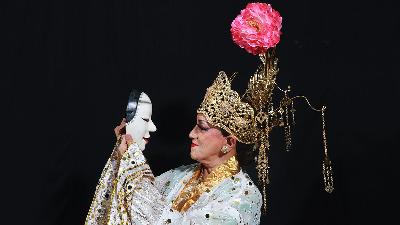
Didik Nini Thowok combines Yogyakarta’s classical dance with Japanese noh in Bedhaya Hagoromo. It is a result of a long study since 2000.

Natasha Tontey’s works, reflecting on the crested macaque, become the subject of a witty and intelligent exhibition.
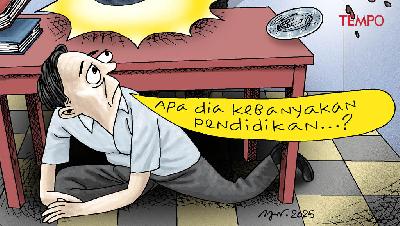
Cartoon: Yuyun Nurrachman
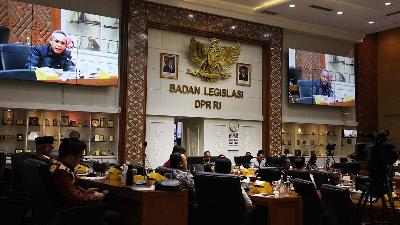
President Prabowo ordered a revision of the Mining Law that will allow the government to issue mining permits to campuses, allegedly to curb criticism.
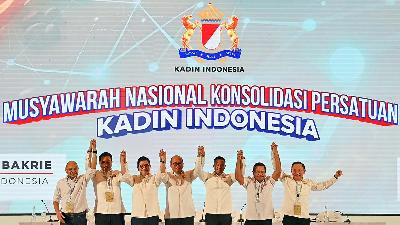
The conflict within Kadin between Arsjad Rasjid and Anindya Bakrie finally ended. Ministers and politicians stepped in as mediators.

Foot-and-mouth disease is making a comeback. The risk of transmission is high, partly due to suspected violations of meat import regulations.

Women’s Empowerment and Child Protection Minister Arifatul Choiri Fauzi on the progress of the free nutritious meal program and violence against women and children.
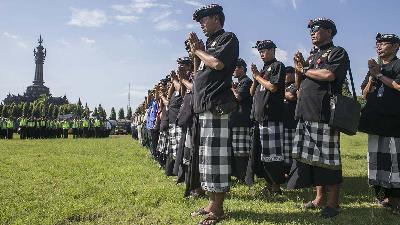
Customary village officials in Bali appoint pecalang to collect fees from visitors. The Corruption Eradication Commission and the Indonesian Ombudsman once intervened.

The government launched an austerity program and tightened its grip on foreign exchange movements. Effective implementation will be key.

Israeli authorities call for the ‘voluntary migration’ of Palestinians so that the Jewish people can settle freely. They forget their history.

The first 100 days of the Prabowo-Gibran cabinet is marred by misconducts and discreditable statements in the part of some ministers and their assistants.

It is predicted that the government’s target of 8 percent economic growth this year will be difficult to achieve. There are many policy inconsistencies.

Hills in Palu are being cleared. The soil and sand are being excavated to build the Nusantara Capital City and food estates. Distributing environmental destruction.

The war on online gambling should be carried out by breaking up the networks. It should not be limited to speeches.
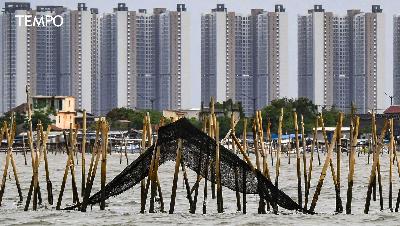
The Tangerang sea barrier intersects the Pantai Indah Kapuk development area. The weakness of the government at the beck and call of tycoons.
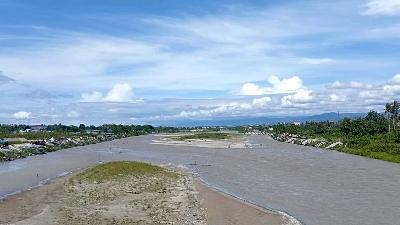
Sand and stones from mining operations along the shores of Palu Bay are being sent to the Nusantara Capital City project in East Kalimantan, as well as to the Merauke food estate project.
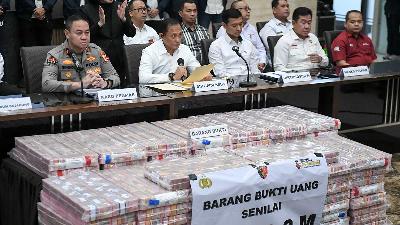
The police named Firman Hertanto a suspect in an online gambling money laundering case. He has been a notorious gambling operator for decades.
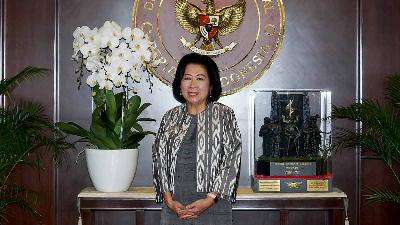
Deputy Chair of the National Economic Council Mari Elka Pangestu explains Prabowo’s economic policies and the 8 percent economic growth target.

President Prabowo Subianto launched the downstreaming of 28 commodities. The downstreaming of food is replacing the saturated mineral sector.
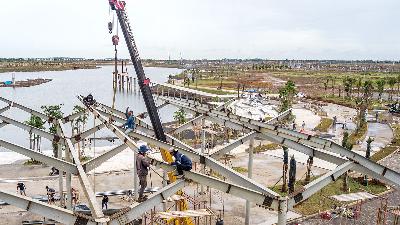
The House of Representatives awaits a signal from President Prabowo Subianto to address issues at Pantai Indah Kapuk. There is a request a request not to disrupt the national strategic project area.
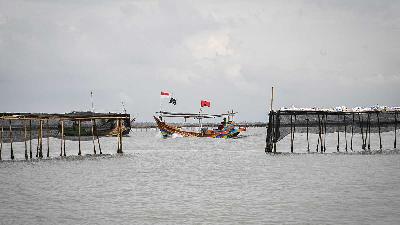
Fishermen along the northern coast of Tangerang are on the verge of losing their livelihood as a sea barrier is erected. On land, residents are forced to sell their land.

A surprising rate cut rattle the rupiah. Bank Indonesia takes a risky about-face.

The OCCRP ranks Jokowi among the most corrupt leaders in 2024. A wake-up call for Prabowo.
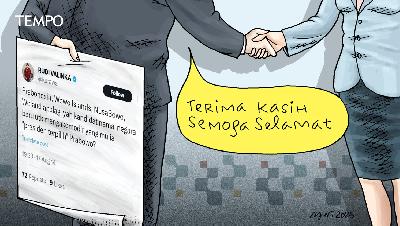
Cartoon: Yuyun Nurrachman
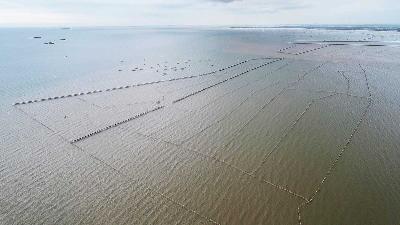
A 30-kilometer-long bamboo sea barrier along the northern coast of Tangerang is suspected to be a marker for claiming land over the sea. Those seeking to control the area reportedly used forged documents, lawyers, and consultants to secure certificates from the National Land Agency.

Running is meditation. There is a distance we pass in the empty space between our breath, our minds, and the urge to quit.
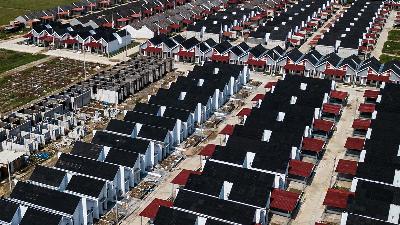
The property industry is thriving, driven by the three-million-homes program. However, challenges remain in disbursing incentives and funding.

The government leans on the food, social, and downstream sectors to achieve its target of 8 percent annual economic growth. Many external factors hinder progress. Some policies are counterproductive.
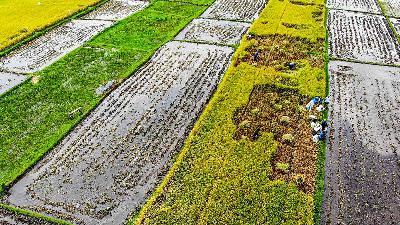
The government raises the purchase price of unhusked rice and halts imports of four food commodities in the hope of achieving self-sufficiency.
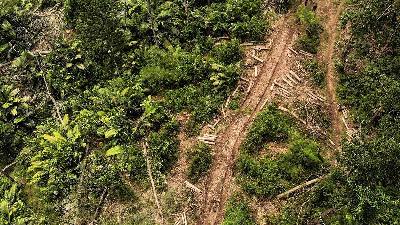
Energy plantations present a new opportunity amid a sluggish demand for forest products. However, this carries the risk of further expanding deforestation.
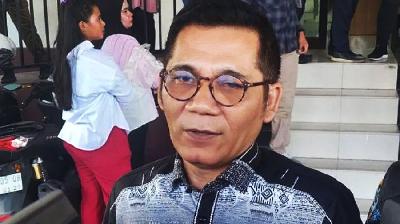
Former North Maluku Governor Abdul Gani Kasuba acknowledged meeting with Bobby Nasution but claimed he gained no advantage from it.

Various traditional and cultural rituals in Indonesia can be quite expensive to carry out. Among the people of Toraja in South Sulawesi, for example, one traditional ceremony can cost billions of rupiah. Getting out of such rituals is not easy, although many communities around the country are determined to let go of certain traditional requirements that can often impoverish them, such as the villagers of Borokanda, at Ende Lio, Flores.
Director of Religion and Traditional Faith at the Education and Culture Minister, Sri Hartini, said that a simplification of rituals can be achieved through deliberations without reducing the substance of tradition. "Only the superficial aspect is simplified," she told Tempo English reporters Isma Savitri and Dahlia Rera in an interview, three weeks ago. Excerpts:

The year 2015 will go down as the year of consolidation, when President Joko Widodo must find his way through the intricate political web he inherited from the previous administration before he can actually begin the job of governing the nation. This is why to many observers, Indonesia seems to fit the description of 'a nation in waiting'. Just how long the waiting is expected to last is anyone's guess but it seems that one year is not enough. The uncertainty, Kuntoro Mangkusubrotoscholar, a former bureaucrat and activistsaid, is likely to carry into the next year when the government feels confident enough to settle down and do the serious job of governing.
Kuntoro has often been called 'a man for all seasons' for his rich and varied background as an academic, a cabinet minister, a successful administrator of billions of dollars worth of post-disaster rehabilitation and reconstruction program and, lately, as a government watchdog and campaigner for transparency and open government. It's no wonder he is much sought after for his views on a variety of issues and topics. We at Tempo English seek him out at every end of the year for his assessment of the state of the nation and his vision for the future. Last week, he shared his worldview with Yuli Ismartono and Amanda Siddharta. Excerpts:

Dr Kuntoro Mangkusubroto, former energy and mines minister and former CEO of state-owned mining companies Bukit Asam, Timah and electricity company PLN shares his views on current issues besetting the mining industry with Melati Kaye and Syari Fani.

THE December 26, 2004, tsunami not only destroyed much of Aceh, it landed Kuntoro Mangkusubroto on the shores of Indonesia's westernmost province. Between 2005 and 2009, the Purwokerto-born graduate of the Bandung Institute of Technology (ITB), took on the monumental job of heading the Aceh-Nias Rehabilitation and Reconstruction Board (BRR). "You only live once, why not take the chance," Kuntoro told Tempo, in an interview at the ITB School of Business and Management in South Jakarta, two weeks ago.
Under Kuntoro, BRR succeeded in building more than 140,000 new homes for victims of the tsunami, 1,000 health clinics, some 2,000 schools and 3,000 mosques. More than US$7 billion had been donated from governments around the world to the recovery process. The BRR programs is acknowledged as the most successful post-natural disaster reconstruction and rehabilitation program in the world.

IF Indonesia wants to avoid bankruptcy, the policy of subsidizing fuel must be ended. By the end of 2014, the funds used in subsidizing fuel is predicted to reach Rp285 trillion, almost a fifth of the amended 2014 State Budget, which is Rp1,6354.4 trillion. The rupiah, which has been weakening since 2011, has helped to contribute to the deficit.
Indonesia is no longer an oil-rich country. Our reserves are estimated to be a mere 3.7 billion barrels of oil, but the price of oil is now cheaper from oil-rich countries like Iraq, with oil reserves of 150 billion barrels. Since 2004, Indonesia has become an oil-importing country. The International Monetary Fund (IMF) predicts that by 2018, Indonesia will be importing US$63.5 billion-worth of oil.

Mitsubishi Motors announced plans to build a new automobile factory in Bekasi in May 2017. According to plan, the new factory will produce multi-purpose vehicles (MPV) with a production capacity of 160,000 units and will continue to develop until it reaches 240,000 units a year.
"We'll begin production in 2017 with a total investment of US$600 million (Rp7.2 trillion)," Mitsubishi CEO Osamu Masuko said at the Industry Ministry last week. He added that 20,000 of the Japanese corporation's total production in Indonesia will be exported to Thailand, Vietnam and the Philippines. "The rest will be marketed in Indonesia," he said.

The increase in the price of cooking gas could slow down the energy conversion program. Subsidies and improvements to distribution could save it.

In that embattled territory, children were watching the Charlie Chaplin film, The Kid. They laughed uproariously. Their parents or older siblings were probably keeping watch on the border with their rifles cocked, but in Rojava, in the area of North Syria occupied by the Kurds, there was a pause in war, and people were building hope.
Who knows for how long?
Independent journalism needs public support. By subscribing to Tempo, you will contribute to our ongoing efforts to produce accurate, in-depth and reliable information. We believe that you and everyone else can make all the right decisions if you receive correct and complete information. For this reason, since its establishment on March 6, 1971, Tempo has been and will always be committed to hard-hitting investigative journalism. For the public and the Republic.